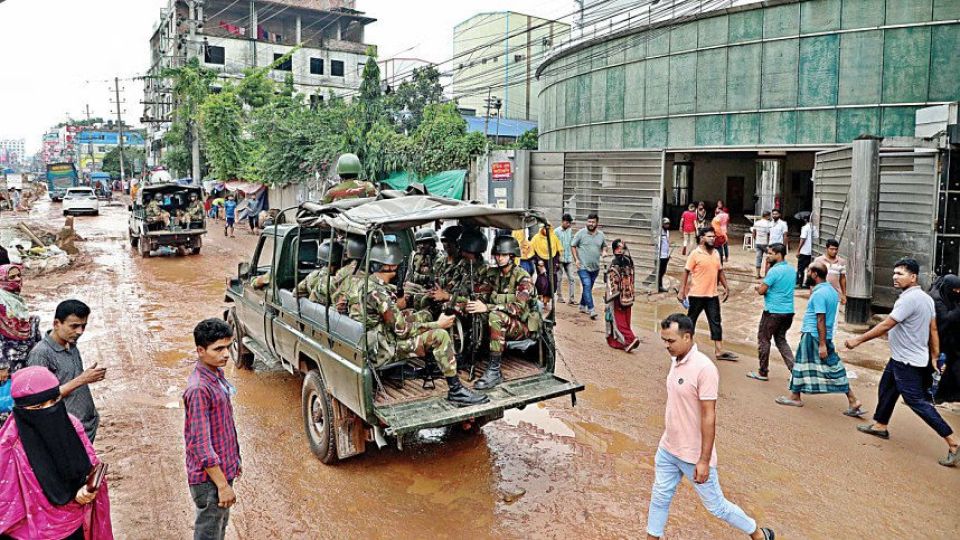September 4, 2024
DHAKA – Amid workers’ protests in Savar and Gazipur, top business leaders yesterday urged Chief Adviser Prof Muhammad Yunus to deploy more army personnel, if needed, to ensure that factories can run smoothly.
Production at factories has been suffering since the beginning of the week due to workers’ unrest.
At least 50 garment factories, mostly in Ashulia, were closed yesterday amid demonstrations, industrial police said. On Monday, nearly 100 factories, mainly garment and pharmaceutical units, remained closed on the outskirts of the capital.
During the meeting with business leaders at the state guesthouse Jamuna, Prof Yunus said the government would support the industries.
The chief adviser told the business delegation that the interim government is committed to protecting the factories from violence and attacks, according to a statement from the chief adviser’s office
“We want to take the industries to a new level,” he said.
Mahbubur Rahman, president of The International Chamber of Commerce, Bangladesh, led the delegation.
“Law and order situation in the industrial areas is not good. Factories are coming under arson attacks,” Mahbubur told The Daily Star.
At least 27 pharmaceutical factories have been shut and vandals are attacking those, he said.
Bangladesh’s image in the world improved when Nobel laureate Yunus took the charge of the interim government and the business community has full confidence in the administration, he said.
“But our reputation will suffer if the industries suffer in the absence of law and order. The international buyers are already scared.
“How will we deliver the orders if our factories are shut? Our safety and security has to be ensured for smooth production and delivery of goods.”
At the meeting, the business representatives observed that police were yet to work like they used to.
The Bangladesh Association of Pharmaceutical Industries at a press conference yesterday requested government support to calm the situation.
At the meeting with the chief adviser, business leaders said outsiders, including some groups living abroad, instigated the vandalism.
Prof Yunus urged the industry leaders to undertake labour reforms to win more orders from global brands.
“We have a major opportunity to make vital reforms. We need to upgrade our labour laws to ILO standards,” he said.
After the meeting, AK Azad, former president of the Federation of Bangladesh Chambers of Commerce and Industries (FBCCI), said pharmaceuticals, leather product makers, and even retail shops were not immune to looting.
“If our foreign buyers orders elsewhere, it will be difficult to bring the business back,” said Azad.
ICCB Vice President Naser Ezaz Bijoy urged the government to be firm in ensuring law and order.
Former FBCCI president Mir Nasir Hossain said, “The readymade garment sector is bringing around 85 percent of our export earnings. This sector has been impacted over the last one month.”
“We have requested the chief adviser to use his global fame to request the international community to keep faith in us,” he told The Daily Star.
Joint drives, involving army personnel, should be frequent so that vested groups cannot damage the country’s reputation, he added.
Khandoker Rafiqul Islam, president of the Bangladesh Garment Manufacturers and Exporters Association (BGMEA), and Tapan Chowdhury, managing director of Square Pharmaceuticals, also attended the meeting.
In Ashulia, 86 factories in the Dhaka Export Processing Zone operated smoothly, said Anwar Parvez, executive director (public relations) of Bangladesh Exports Processing Zones Authority.
Mohammad Sarwar Alam, superintendent of police of Industrial Police-1 in Ashulia, said workers demonstrated in front of some factories in the morning but they did not block roads.


